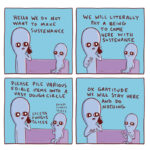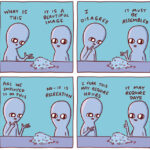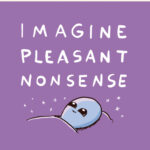síce pár rokov starý článok, ale aj tak oči-otvárajúci: Milgram’s “Obedience to Authority” Replicates
Stanley’s Milgram‘s “Obedience to Authority” experiments are doubly famous.
First, he supposedly showed that most Americans would shock a total stranger to death because an authority told them to do so.
Second, his experiment was widely perceived as emotionally abusive – so widely, in fact, that Milgram inspired the strict rules that now govern human experimentation. These rules are allegedly so onerous that Milgram’s experiment can never be replicated.
…
Recently, though, I was surprised to discover that Milgram’s famous experiment was re-done in 2009! How is this even possible given modern regulations?
niečo takéto by sme potrebovali aj na Slovensku: How to defeat a mafia state
Which is why what’s happening in Guatemala right now demands attention. Over the past six months, Guatemalans have made an audacious gambit to take their government back. And against all odds, they’re winning.
Nobody expected this. Until quite recently, Guatemala was arguably an excellent example of what the Venezuelan writer Moisés Naím calls a “mafia state” — a country run by a criminal syndicate focused mostly on enriching itself. Guatemalans call it the pacto de corruptos, or the “pact of the corrupt.” A nested set of criminal enterprises thoroughly colonized the state, infiltrating not just the government, but the courts, the election authorities, and crucially, the powerful office of the public prosecutor.
Company: this pan is non-stick!
Me: forever?
Company: lol no for like a month
Me: oh–
Company: if you scratch it it’s poisonous
Strange Planet – už dávnejšie som s Kubom (toto naozaj nie je Kikin žáner) čítala komixové knižky (aj sme potom dve darovali), takže keď sme našli seriál, jasné, že sme pozerali:
Spojenia ako “time to gain consciousness”, “imagine pleasant nonsense”, “gratitude”, “vibrating creatures” sa už u nás udomácnili.
Good conversations have lots of doorknobs
When done well, both giving and taking create what psychologists call affordances: features of the environment that allow you to do something. Physical affordances are things like stairs and handles and benches. Conversational affordances are things like digressions and confessions and bold claims that beg for a rejoinder.
rozhovor s Jurajom Buzalkom (autork knihy Postsedliaci)
mnohých ľudí až tak netrápi kvalita demokracie, pretože veria, že opäť vybabrú so systémom, poradia si a budú sa mať dobre. „Nebezpečie pod povrchom dnešného sporu o slobodu a o podobu demokratického režimu je uspokojenie, že my aj tak ovládame mikrosvet okolo seba a čo je mimo neho, sa nás nedotkne,“ vysvetľuje.
rozhovor s kariérnou poradkyňou Monikou Timkovou
Školstvo je ešte stále rigidné a oddelené od reality. Dbá sa v prvom rade o výsledky. Hovorí sa, že je to vzdelávanie a výchova, ale tá výchova sa vníma skôr ako poslušnosť, dobré správanie. Ale neučíme ich, ako spoznávať svoju osobnosť či ktoré hodnoty sú pre nich dôležité. Počujem učiteľov hovoriť: to je drzák, spýtal sa ma na hodine, na čo mu to bude. Podľa mňa je to skvelá otázka!
aj ja by som chcela byť reader-in-residence
The reader-in-residence position at Perelandra Bookshop doesn’t make sense on paper. Unlike an artist-in-residence or a writer-in-residence program, which provide a stipend and studio space for creating new work, the reader-in-residence isn’t expected to produce anything.
The reader-in-residence doesn’t have to write an essay. They don’t have to host a book club or moderate a panel discussion. They don’t have to contribute to a blog or create sponsored content. They don’t have to doanything, except show up to the bookstore a couple of times per week and read.
“I think the residence paralleled my own personal concerns about the extent to which we focus ourselves on production,” said Joe Braun, principal book buyer at Perelandra, and the person who dreamed up the position. “In focusing on production, foregrounding content creation, what we do is necessarily create a consumer in the process. The idea is: produce, consume, produce, consume.”
Braun wanted to break that cycle. Is the residency replicable? Maybe. Is it scalable? Probably not. But that has never been the point. The point is to envision what a bookshop can do, not what it already is, Braun said.




